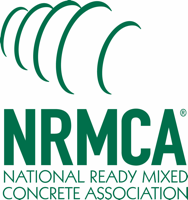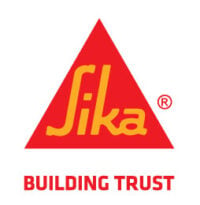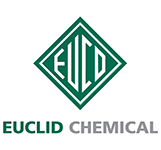Handling Concrete Specifications, Low Strength Problems and Mixture Submittals
Next class tba
…………………………………………………………………
PURPOSE AND BACKGROUND
Dealing with concrete specifications, troubleshooting low-strength problems and ensuring proper mixture submittals can be expensive and time-consuming. This one-day course will get into the code and specification requirements (ACI 318, 301, ASTM C94) governing ready mixed concrete. It will suggest specification revisions for all around benefits in performance and cost based on a specification guideline document. The guideline document is the result of reviewing numerous concrete specifications (Section 03300) belonging to large owners, and it has been reviewed and supported by the NRMCA Research, Engineering & Standards (RES) Committee.
Troubleshooting low strength problems is perhaps the primary reason for back charges for a concrete company. This could be almost entirely avoided by knowledgeable concrete technical personnel. The course will cover the analysis of strength test results to identify the causes of low-strength problems, including technician competence, and will provide guidance in tracking compliance with specification requirements. Other topics to be discussed include non-destructive testing techniques (such as the Rebound Hammer), core testing, evaluating core test results for acceptance, and the assignment of responsibility.
Another part of this course provides necessary details required for an efficient concrete mixture submittal following a flowchart for Selection of Concrete Mixtures. Analysis of a typical mixture submittal will be conducted as a group exercise.
WHO SHOULD ATTEND?
Producers and contractors who attend this seminar will benefit in their discussions with design professionals. Equipped with in-depth knowledge about improving concrete specifications, they will be able to address performance issues, avoid conflict, and save money. Producers, contractors, engineers and testing labs will learn much from the discussions on investigating low-strength problems, helping them to avoid issues that impact partnering, project cost and schedule. For concrete producers, understanding how to do a proper mixture submittal is an essential skill, and it will be thoroughly covered during this seminar.
PRESENTATION HAND-OUTS
- Print out of the presentations
- Guide to Improving Concrete Specifications
- NRMCA/ASCC Pre-Construction Checklist
- Flowchart of ACI Mixture submittal process
- Research to Support P2P (Prescriptive to Performance specification)
- Computer program for analyzing concrete test results
- NRMCA Publications:
- – No. 133—In-Place Concrete Strength Evaluation
- – A Recomended Practice
- – No. 179—Variables that Influence Measured
- – Concrete Compressive Strength
- – No. 185—Understanding Concrete Core Testing
- Related Specification in Practice topics and P2P Presentation
- Selected Publications by Mr. Luke Snell
- Code and Standards Requirements for Acceptance Testing Presentation with notes and checklist
Instructors
Luke Snell, is a Concrete Consultant Concrete and an Emeritus Professor of Construction from Southern Illinois University Edwardsville. He has done extensive consulting work on construction and concrete problems throughout the U.S. and internationally. He has also written over 400 articles on concrete, construction materials, and construction education. He has been instrumental in starting concrete certification programs in China, India, Taiwan, Mongolia and Saudi Arabia. He is the past chair of several ACI committees including the ACI 120 History of Concrete, The Educational Activities Committee and the Chapter Activities Committee. Snell is an ACI Fellow and has received numerous awards and was named one of the Ten Most Influential People of the Year in the Concrete Industry by Concrete Construction and Concrete Producer magazines (2007), Construction Laureate of Mongolia (2007), the Henry L Kennedy Award from ACI (2008), a Honorary Doctorate from Aria University of Sciences and Sustainability (2011) and the ACI Certification Award (2015). He is a licensed Professional Engineer in Missouri and Illinois.
Karthik Obla, Ph.D., P.E., FACI, is Vice President, Technical Services at NRMCA. With over 30 years of experience in concrete technology, he is responsible for NRMCA’s concrete producer quality initiatives, and research investigations at the laboratory and oversees various educational programs and technical publications at NRMCA. He jointly manages the activities of the NRMCA Research, Engineering, and Standards Committee, which oversees the performance-based specifications initiative. A fellow of ACI and a winner of ACI’s Young Professional Achievement Award and ASTM Award of Appreciation from the Sustainability E60 and Concrete C09 Committees, Dr. Obla is an active member of various ACI, ASTM, and TRB technical committees. He is the recipient of the Richard D. Gaynor award from NRMCA, and along with his co-authors won the Best Paper award from ASTM for a paper published in the Advanced Civil Engineering Materials journal. He was also recently awarded the Katharine and Bryant Mather Member Contribution Award. He has served as chair for ASTM 09.49—Pervious Concrete, and ACI 232—Fly Ash and Natural Pozzolans. He has published a book on concrete quality and a chapter in a book on concrete sustainability and has over 100 technical articles and reports. He holds a B.Tech in civil engineering from IIT (BHU) Varanasi, India, and an M.S. and Ph.D. from the University of Michigan, Ann Arbor.
Jeff O’Leary, is a concrete consultant. He has over 45 years of experience in concrete materials, production, testing, and evaluation. After acquiring his BSC from Purdue University, he worked for 33 years as Director of Technical Services for one of the largest concrete producers in the US. He was responsible for the Technical Services department overseeing 69 R/M plants producing over 4 million cubic yards annually, 3 prestress/precast facilities, 13 concrete masonry plants, and 7 accredited laboratories. He has spent the most recent 7 years slowing down with a smaller concrete products company. He remains an active member of national organizations such as ASCE, ACI, ASTM, and NRMCA, serving on various committees. He has also served on various local organizations such as the FDOT Concrete Council, CMEC Board of Direction, and UNF Engineering Advisory Council. He has also published various articles and papers on topics such as specifying, testing, producing, and cooling concrete of various performance characteristics.
PROFESSIONAL DEVELOPMENT HOURS AND CERTIFICATION DETAILS
A certificate of completion stating 8 Professional Development Hours will be provided to all attendees. This course earns 8 credits towards a CCPf designation in the Concrete Technology career track. CCPf, standing for Certified Concrete Professional, is the highest professional designation in the industry.





